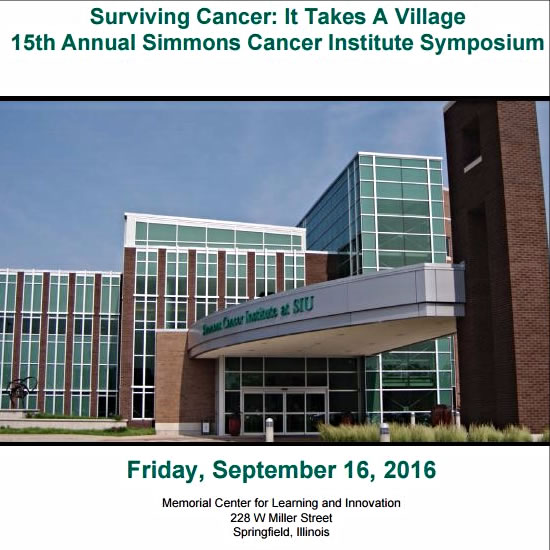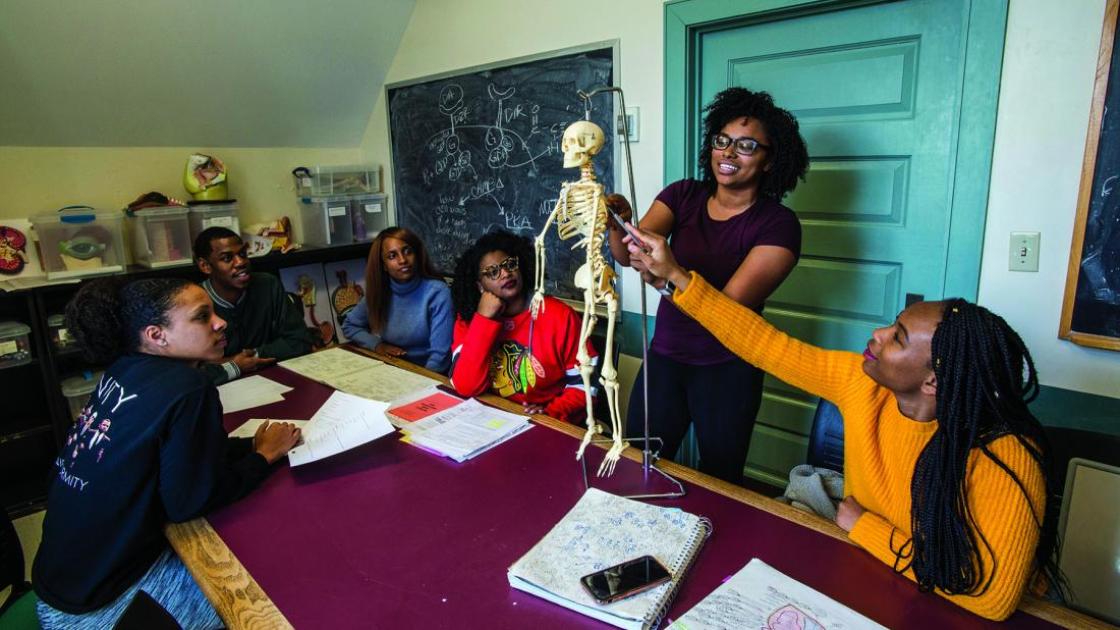
Surviving Cancer: It Takes a Village
Simmons Cancer Institute hosts 15th annual cancer symposium
Simmons Cancer Institute (SCI) at Southern Illinois University School of Medicine will hold its 15th annual symposium, “Surviving Cancer: It Takes a Village,” on Friday, Sept. 16 at Memorial Center for Learning and Innovation, 228 W. Miller St., Springfield. The conference is designed for physicians and health care professionals interested in the care of cancer patients.
The symposium will include interactive sessions and simulated encounters using standardized patients. The first session, “Breaking the News about a Cancer Diagnosis” will feature three physicians delivering a cancer diagnosis to a simulated patient from the perspectives of a family physician, oncologist and surgeon. Following the simulation, participants and leaders will debrief the simulations and discuss.
The symposium, led by Robert Mocharnuk, MD, director the Breast Center at SIU, and Rexanne Caga-anan, MD, assistant professor of internal medicine, will feature 10 sessions, including:
- “How Patients and Physicians View, Assess and React to Critical Discussions Differently”

- “Cancer Treatment and Related Side Effects – A Patient’s Story”
- A panel discussion on “Managing Treatment-related Complications and Side Effects”
- “The Changing Face of Cancer Treatment: Targeted and Immunotherapies”
- “Integrating Basic Science into Clinical Care”
- “Post Treatment Care – A Patient’s Story”
- “The Role of Caregivers in Cancer Survivorship”
- “Long Term Survivorship – A Patient’s Story”
- “Cancer Survival and Survivorship”
- A question and answer period with a patient
Presenters include SIU physicians: Kevin McVary, MD; Michal Dynda, MD; Sherjeel Sana, MD; Patricia Fank, PsyD; Meghna Desai, MD; Robert Mocharnuk, MD; Andrew Wilber, PhD; Danielle Barnosky, RN, BSN; and David Steward, MD, MPH. For a complete schedule of sessions, visit siumed.edu/cpd.
The mission of Simmons Cancer Institute at SIU is to serve the people of central and southern Illinois by addressing their present and future cancer needs through education, biomedical research, patient care and community service.



